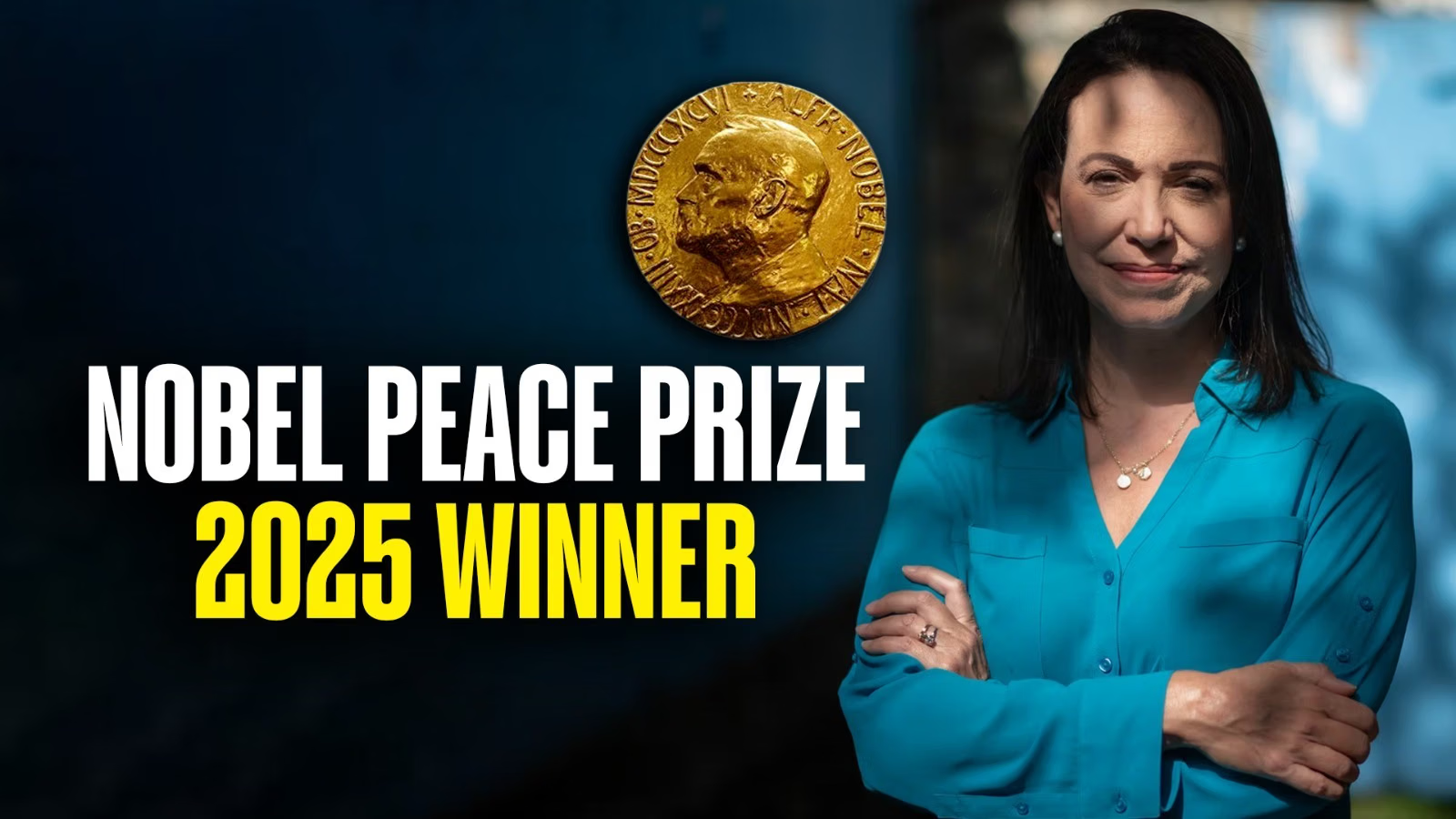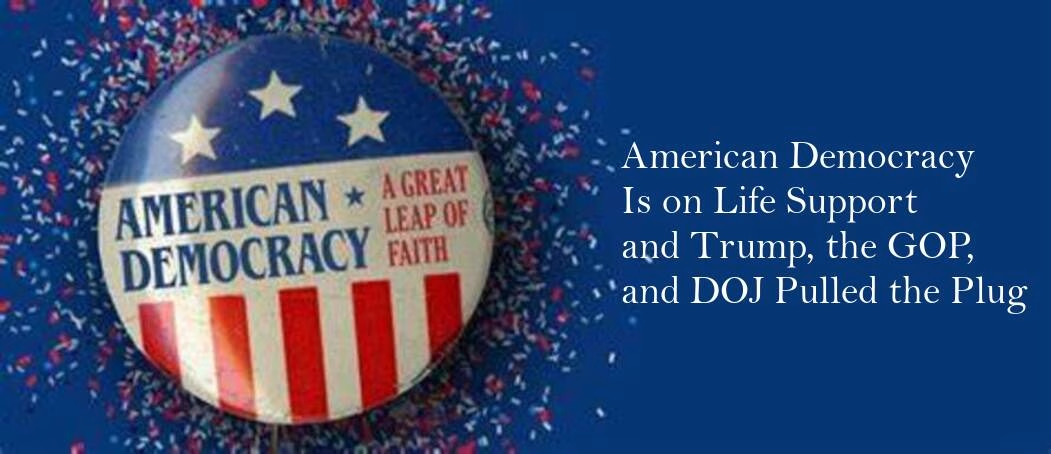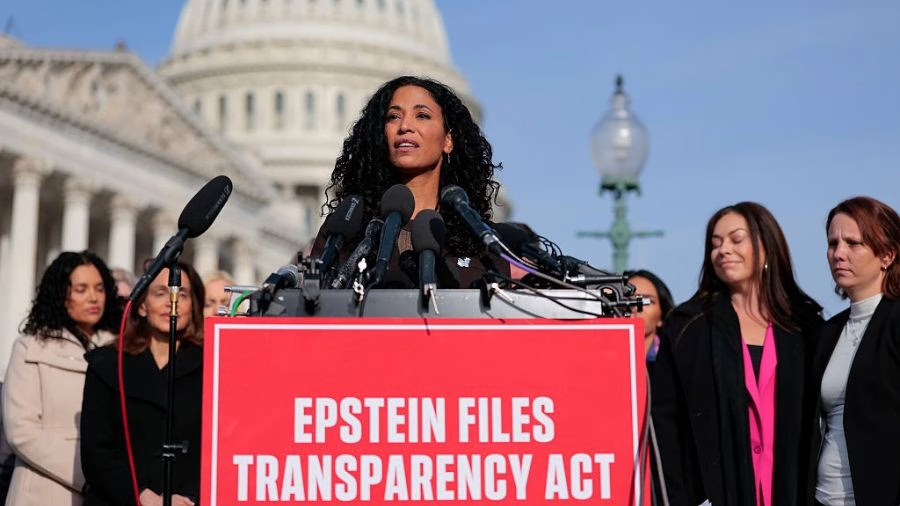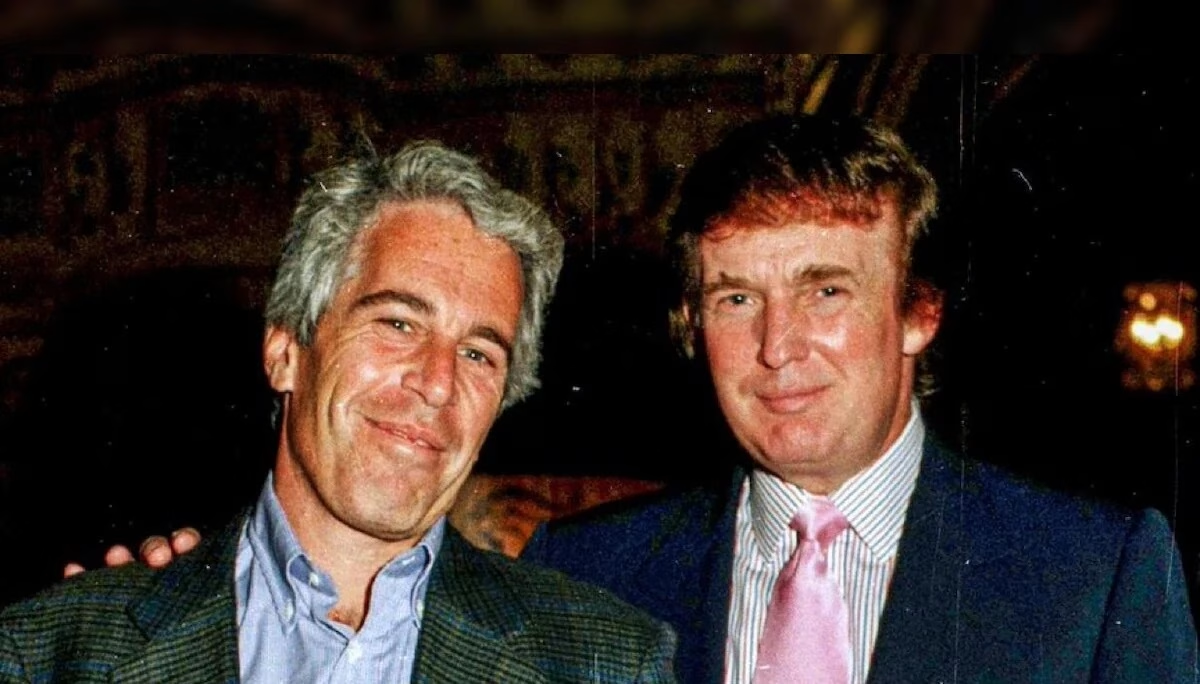By Don Terry & Ben Emos | Monday, October 13, 2025 | 5 min read
The Norwegian Nobel Committee did what everyone expected them to do: they refused to award President Donald Trump the Nobel Peace Prize. Venezuelan opposition leader María Corina Machado won the prize instead. A true hero of democracy, Machado is no doubt deserving of this honor, and her victory carries a quiet but powerful message to the world: peace prizes are not consolation trophies for the loudest man in the room.
For months, Trump and his most loyal supporters had been floating the idea that he was on the verge of something historic. Rallies were filled with whispers of a Nobel moment, pundits in sympathetic media corners declared him a peacemaker, and Trump himself fed the narrative with his usual mix of bravado and wounded pride. He was convinced that he had done more for world peace than almost anyone before him. It was, in his view, the least the world could do—give him a medal.
But the Nobel Peace Prize is not awarded on the basis of self-promotion or political theater. It is given to individuals whose actions, often at great personal cost, embody the difficult and often unglamorous work of building peace. María Corina Machado is one of those people. She stood up against an authoritarian government in Venezuela, facing threats, violence, and attempts to silence her. In many ways, her courage highlights the chasm between someone like Machado and someone like Trump.
Trump’s yearning for the Nobel Prize has been an open secret for years. During his presidency, he repeatedly brought it up, often with a mix of resentment and disbelief. He would remind crowds that Barack Obama received the prize in 2009, a fact that still seemed to gnaw at him. He would point to talks with North Korea, the Abraham Accords, or moments when his administration avoided escalating conflicts, as evidence that he too deserved recognition. But what Trump never seemed to grasp was that diplomacy is not a show staged for applause. Real peacemakers don’t hold rallies about their greatness—they do the work quietly, often in dangerous circumstances, without the expectation of glory.
Added to the equation are the storms he created both at home and abroad. Inside the United States, entire states and cities were thrown into political and cultural turmoil during his presidency. California, Washington DC, and Chicago became flashpoints of unrest, with deepening divisions and a climate that at times felt more like a war zone than a functioning democracy.
Abroad, Trump declared a global trade war on tariffs, rattling allies and adversaries alike. In one of the most bizarre diplomatic moments of his tenure, he even asserted that he could take over Greenland from Denmark—a fellow NATO member and a key part of the Scandinavian community. This wasn’t a passing comment; it was an assertion that reflected how casually he approached matters of international sovereignty. His rhetoric left countries like Panama and Canada unsettled. Traditional alliances were treated like business deals to be torn up or remade at will, and long-standing partners found themselves wondering whether the United States under Trump was still a reliable ally.
What makes the Nobel Committee’s decision particularly striking is how it lands against the backdrop of this growing chaos. While Trump imagined himself as a global statesman, his actions often destabilized the very systems that have kept fragile peace intact. His foreign policy rarely resembled diplomacy; it more often felt like a game of brinkmanship, where the line between boldness and recklessness blurred. The Nobel Prize was never going to be awarded to someone whose legacy is so entangled with division, hostility, and provocation.
Trump’s relationship to power has always been theatrical. He doesn’t just want to lead; he wants to be adored, feared, and mythologized. The Nobel Prize represented something deeper to him than a medal. It was a stamp of legitimacy from the international community—a community he has often mocked and dismissed, but secretly craves acceptance from. In his mind, a Nobel Prize would be proof that the world recognized him not just as a political figure, but as a global savior. When the committee chose someone else, it wasn’t just a political defeat. It was a symbolic rejection of the myth he has built around himself.
Meanwhile, María Corina Machado embodies a very different kind of power. She doesn’t command armies or bask in adoring crowds. She has risked imprisonment and worse to challenge a repressive regime in her country. Her fight is one for the preservation of democratic ideals, not the glorification of a single leader. The contrast couldn’t be sharper. While Trump was hosting rallies and demanding applause, Machado was facing down real danger for real democratic principles.
The Nobel Committee’s decision may not change Trump’s behavior—very little ever does—but it does serve as a kind of mirror. It reflects back the image of a man who has spent years trying to bend the world to his will, only to discover that some institutions are not so easily swayed. Awards like the Nobel Prize are not popularity contests. They cannot be bought, bullied, or spun into submission.
For Trump’s base, the decision will likely be dismissed as another example of global elites conspiring against him. For Trump himself, it will probably sting, though he’ll never admit it. He’ll find a way to frame it as proof that he’s too powerful, too threatening to the establishment. He always does. But behind the bluster, behind the rally chants and the defiant speeches, there’s a man who wanted something he couldn’t get—not because of politics, but because of who he is.
In the end, history tends to be unsentimental. It remembers who built bridges, who risked everything for peace, who stood against tyranny. It also remembers those who tried to claim credit for things they never truly achieved. María Corina Machado will be remembered as a woman who stood up to a dictatorship. Donald Trump, for all his demands for praise and his yearning for a medal, will be remembered as a man who tried to rule like one.
That is the quiet truth behind this year’s Nobel Peace Prize. It was not just about honoring a brave woman in Venezuela. It was also, in its own understated way, a rebuke of the kind of politics that Trump represents. The world saw through the performance. And when the time came to choose, it chose courage over spectacle.
Comey’s Charges Had Nothing to Do With Russia Interference — This Was Trump’s Payback
Epstein Files Put Musk Back in Spotlight—Could Tesla’s $29 Billion Shareholder Payout Be at Risk?
Mexico Is Not the Origin of the Drug Trade—Europe and Big Pharma Were There First
Trump’s Russia ‘Paper Tiger’ Remark Steals the Spotlight as 2025’s Best Punchline
Nexstar, Sinclair Refuse to Broadcast ‘Jimmy Kimmel Live!’ Following ABC Return






